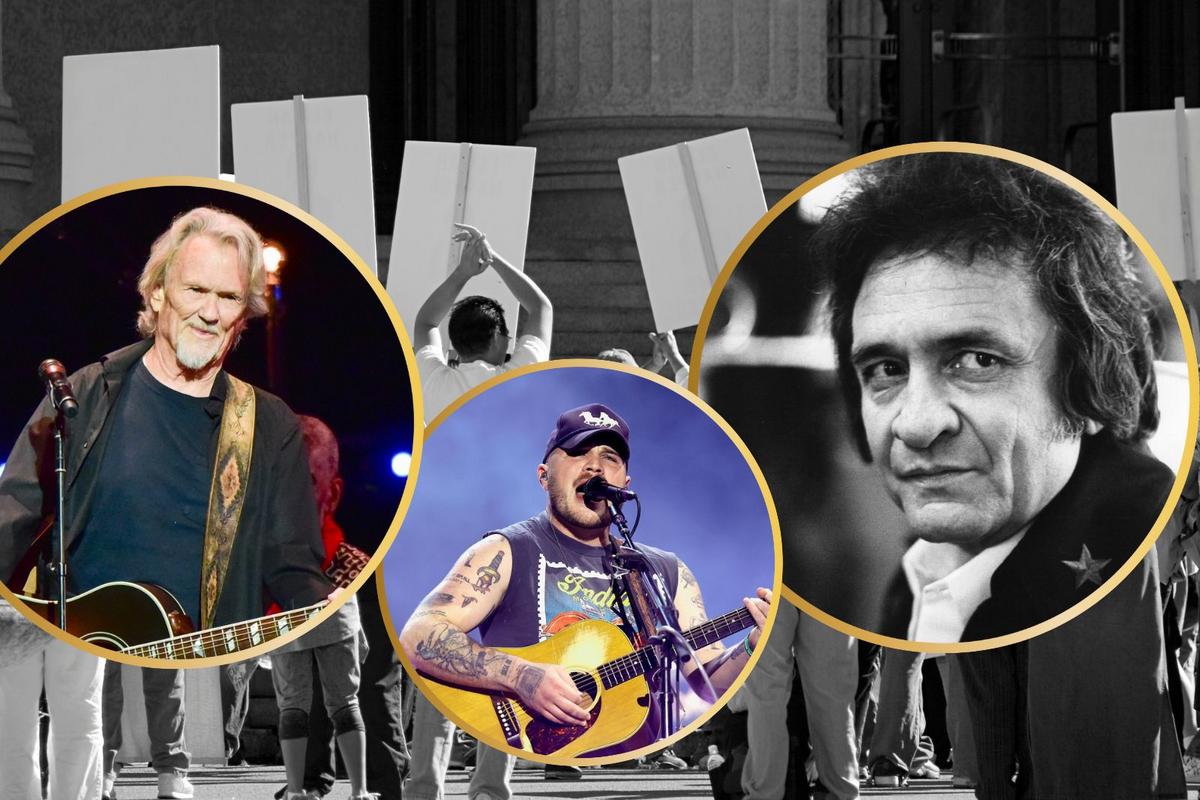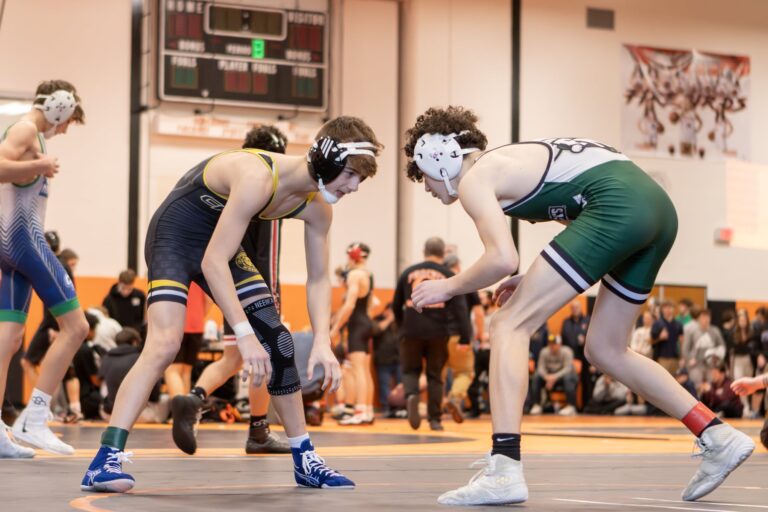
If you think the Department of Homeland Security was right to tell Zach Bryan he should “stick to ‘Pink Skies'” after he criticized ICE in a new song, you might want to check your country music history.
“Shut up and sing” is a familiar sentiment for any country star who’s expressed a political viewpoint publicly. But if you look back at country music over the years, you’ll find that it has always had stars who spoke out against the U.S. government, the establishment, and the status quo.
Protest is part of the artistic imperative, and country singers have long contributed to the American protest music songbook. On the left-leaning side, country music’s protest songs have actually become tamer over the years.
### The Rise of the Alt-Right in Country Music
Historically, many of country music’s biggest stars have demurred when asked about politics. Dolly Parton is a classic example: she has consistently rebuffed interviewers’ questions about her political views throughout her seven-decade-long career.
However, especially since Donald Trump was first elected in 2016, many country stars have become more candid about their conservative leanings. Jason Aldean leads this pack. He and his wife Brittany have become increasingly vocal about their right-wing views and support of Trump. Aldean even performed during Trump’s 2024 inauguration ceremonies, has gone golfing with the president, and reportedly has his personal phone number.
RaeLynn has also ramped up her conservative viewpoints along the same timeline. More recently, Nate Smith reintroduced himself to fans as a Trump supporter, emphasizing his love of Jesus, conservative values, and America. Other proudly conservative stars include Justin Moore, John Rich, Aaron Lewis, and Kid Rock.
To a lesser extent, political expression has increased on the left side as well. Maren Morris became increasingly vocal about her left-leaning viewpoints before distancing herself from the country genre in 2023. And in October 2025, a rising star named Bryan Andrews is making waves with his far-left political commentary—something rarely seen in mainstream country music today. (More on Bryan Andrews below.)
### What Kind of Protest Songs Have Country Artists Released?
The 1970s were a hotbed of political expression in country music. Artists like Kris Kristofferson, John Prine, and Johnny Cash delivered anti-establishment lyrics stronger than most modern country stars would dare to sing.
Loretta Lynn and Dolly Parton sang powerful anthems about women’s rights in the workforce and reproductive freedom. Steve Earle, the Chicks, and Jason Isbell have criticized U.S. involvement in wars and armed conflicts.
Many artists—such as Aaron Lewis, Hank Williams Jr., Oliver Anthony, Jason Aldean, and Merle Haggard—have recorded songs criticizing government overreach, championing traditional country values of rural living with minimal federal involvement.
Tennessee Ernie Ford and Patty Loveless are notable for focusing on workers’ rights issues including union disputes and exploitation of the poor.
However, the anti-ICE lyrics in Bryan’s new song *“The Fading of the Red, White and Blue”* are a bit rarer, as country music doesn’t often tackle criticism of police or immigration enforcement.
### What Are Some Country Songs About the Police?
Although country music traditionally supports working-class themes and women’s rights, the genre also has a well-deserved reputation for being pro-cop.
Songs like George Strait’s *“The Weight of the Badge”* and Reba McEntire & Faith Hill’s *“Sleeping With the Telephone”* honor the risks police officers take in defending their communities.
Yet, there are surprising numbers of country songs that criticize the police, often addressing police brutality or racial profiling. These songs range from decades-old classics to recent releases, all reflecting country music’s tradition of free speech—even when it challenges the political beliefs of many listeners.
Here are some of the most impactful anti-police country songs in the genre’s history:
—
### 1. Zach Bryan, “The Fading of the Red, White and Blue”
Bryan’s song is the newest on this list—and he hasn’t even released the full track yet. However, a teaser lyric about how “ICE is gonna come and bust down your door” sparked backlash from Homeland Security Secretary Kristi Noem, White House spokesperson Abigail Jackson, and others.
From his reaction, it seems Bryan wasn’t trying to take a strong stance against the police. He said he was “embarrassed” and “kind of scared” by the response, promising a more balanced perspective in the complete song. Bryan assured fans he isn’t on either of the two “radical sides.” Historically, he hasn’t expressed overt politics often, though he served in the Navy and frequently shares patriotic beliefs.
—
### 2. Waylon Jennings, “Don’t You Think This Outlaw Bit’s Done Got Out of Hand”
Jennings criticizes the police from the start:
> “I’m for law and order the way that it should be / This song’s about the night they spent protecting you from me.”
Written after a drug bust at his studio in the late 1970s, this song reflects his frustration after DEA agents arrested him—charges later dropped. Jennings questions whether his “outlaw country” persona made him a target and critiques law enforcement’s focus on drug arrests over more serious crimes.
—
### 3. Johnny Cash, “The Ballad of Ira Hayes”
Cash’s 1964 rendition tells the story of Ira Hayes, a Native American Marine who helped raise the U.S. flag at Iwo Jima during World War II. Despite his heroism, Hayes struggled with alcoholism and was repeatedly jailed after his discharge, dying at 32.
The song criticizes the U.S. government’s poor treatment of veterans and the exploitation of Native Americans, highlighting stolen water rights and hunger in Hayes’s community.
—
### 4. Tyler Childers, “Long Violent History”
Released in 2020, this song addresses the Black Lives Matter movement and police killings of minorities.
Childers wrote it as a message to rural Appalachian audiences who condemned looting linked to BLM protests. The lyrics ask:
> “How many boys could they haul off this mountain / Shoot full of holes, cuffed and layin’ in the streets…”
He challenges listeners to consider how they’d react if their own community—historically oppressed poor white Appalachians—was unfairly targeted by police, questioning why they condemn minority communities for fighting similar injustices.
—
### 5. J.J. Cale, “If You’re Ever in Oklahoma”
This 1972 song is a straightforward warning to travelers to avoid the police in Oklahoma, who “got fines and they got plenty” and who “threaten your life and take your money.”
—
### 6. Kris Kristofferson, “The Law is for Protection of the People”
Kristofferson’s 1970 song takes a tongue-in-cheek look at police authority, listing individuals the law might remove from the streets to “protect” people—a drunk, a hippie, even Jesus Christ.
The irony highlights skepticism about the true role of law enforcement.
—
### 7. Bryan Andrews, “The Older I Get”
In October 2025, Bryan Andrews—a new country artist—is going viral on TikTok with his song “The Older I Get.”
Andrews is extraordinarily outspoken for a mainstream country artist, condemning the genocide in Gaza, the Epstein list cover-up, ICE deportations, capitalism, and more.
He’s not just singing these views; he discusses them openly on social media, often filmed in his truck, calling out the cops and the U.S. government.
—
### 8. John Prine, “Your Flag Decal Won’t Get You Into Heaven Anymore”
While more about empty patriotism than the police directly, Prine’s classic critiques performative nationalism.
The narrator decks his car with American flags so fully that he can’t see while driving and dies in an accident. At Heaven’s gate, he’s turned away:
> “We’re already overcrowded from your dirty little war,”
a sharp condemnation of hollow displays of patriotism.
—
### 9. Maren Morris, “Better Than We Found It”
Maren Morris released this song in 2023, shortly before distancing herself from country music partly due to its political narratives.
She critiques the police for sometimes doing more harm than good:
> “Over and under and above the law / My neighbor’s in danger, who does he call?
> When the wolf’s at the door all covered with blue / Shouldn’t we try something new?”
Inspired by police killings of minorities and the Black Lives Matter protests, Morris wrote the song out of hope for a better future for her young son.
—
### Conclusion
Country music has a rich history of political expression, including critiques of government and law enforcement. From outlaw country legends to rising stars like Zach Bryan and Bryan Andrews, the genre continues to be a platform for protest—whether conservative or liberal.
So next time someone tells a country artist to “stick to music,” remember: protest has always been part of the country music story.
https://tasteofcountry.com/country-songs-police-protest/



